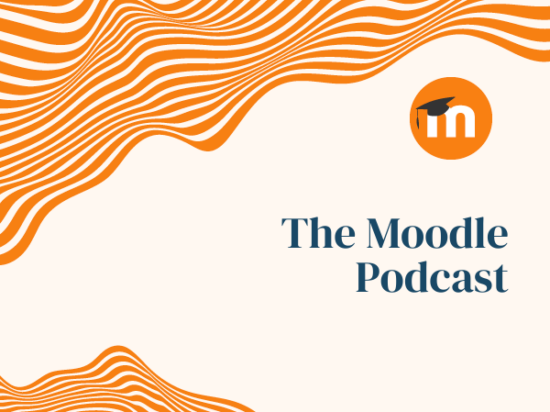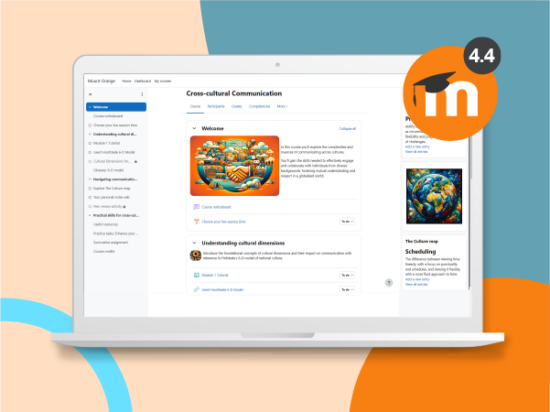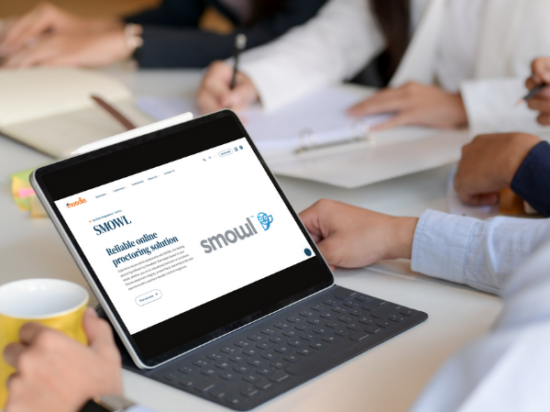Exciting news Moodlers, Moodle has been selected, out of several hundred quality proposals, to be one of 18 selected to facilitate a workshop at the upcoming UNESCO Mobile Learning Week 2018.
Mobile Learning Week is UNESCO’s flagship ICT in education conference and is being organized in partnership with the International Telecommunication Union (ITU), the United Nations specialized agency for ICT.
Mobile Learning Week 2018 will examine strategies to ensure that all learners acquire the digital skills and competencies needed for life and work in emerging digital societies, in line with the United Nations Sustainable Development Agenda.
The event will be held from 26 to 30 March at UNESCO Headquarters in Paris.
This year’s theme is Digital Skills for a Connected World, with a focus on:
- types of skills needed in an for a connected economy and society with a focus on digital skills and competencies; and
- strategies and ways in which these skills can be delivered and assessed within context of Sustainable Development Goal 4 Quality Education.
The conference, consisting of four related sub-events, will facilitate actions on:
- Defining and mainstreaming digital skills;
- Innovating skills provision for jobs in the digital economy;
- Closing inequalities and gender divides; and
- Mapping and anticipating changing skill needs
Our Education team members, Solange Lalonde and Bob McDonald will be presenting under the sub-theme of: Defining and Mainstreaming Digital Skills which addresses the following topics:
- the imperative to define digital skills that have relevance in local and global contexts and to integrate them in a coherent way throughout formal and non-formal education, training systems, and capacity development initiatives; and
- the challenge to define a set of essential digital skills or competencies that all students or adult learners should develop while ensuring that they are applicable to the diverse circumstances and contexts where learners need to use them.
We sit down to talk to Solange about her upcoming presentation and ask some questions about Moodle’s upcoming presentation around digital skills.
Moodle HQ: Thanks Solange for taking the time to chat to us about Moodle’s selection to present at UNESCO Mobile Learning Week. It is very exciting.
Can you tell us a little bit about why there is such a focus on digital learning and skills?
Solange: I think there are multiple factors that influence this shift in focus on digital learning and skills. There is a rapid growth in access and use of digital technologies creating social and economic impacts that influence how we learn and where we work.
While this can empower individuals with access to increased opportunities, it also increases the need for digital competencies that are essential to fully participate in a connected world. Educators have role in preparing learners to be digitally competent, training and supporting them to be able to do this is important.
Moodle HQ: From an educator’s perspective, what do you think is needed to support delivery of digital learning for teachers?
Solange: We’re facing a shift in curriculum development with a greater focus on not only what we are teaching, but also how we are preparing and supporting learners to achieve their goals.
My perspective is that we need a learning-centered approach to teaching and learning where both educators and learners have a voice in determining what success looks like and what support means to them.
What’s needed to support educators is a process for progressive digital skill development, as well as digital content that relates to their diverse contexts.
Moodle HQ: Can you tell us a little bit more about what are the key messages or elements you would like to get across in this presentation?
Solange: The key message that we are looking forward to sharing is our approach to empowering Moodle educators to develop digital competencies to effectively prepare learners for an increasingly online, global economy.
Using research and resources from UNESCO as well as the European Framework for the Digital Competence of Educators, we’ve designed a dynamic curriculum for adult learners. In reaching and supporting educators in education, higher education, and workplace learning, Moodle enables us to ensure scalable and mobile access to educational resources using an open source learning platform.
Moodle HQ: Our mission is “Empowering educators to improve our world.” What does this mean in reference to the Moodle Educator Certification Program and to your UNESCO presentation?
Solange: With the development of the Moodle Educator Certification Program (MECP), we strive to meet the needs of system leaders, facilitators, and educators with the goal to contribute to quality education and the United Nation’s Sustainable Development Goal 4 “to ensure inclusive and quality education for all and to promote lifelong learning.”
We hope to empower system leaders to ensure a process to develop and monitor digital competence of educators by implementing system-wide professional development program for teaching and learning.
For empowering facilitators, the MECP includes quality professional development instructional materials designed with the expertise and resources from Moodle HQ. Our curriculum vision also includes empowering educators to demonstrate achievement in digital competencies by following a certification path that includes badge incentives leading to a capstone certification module.
We will be sharing some of this information and also focusing on how Moodle’s open-source learning platform provides both institutions, educators and learners with an open, scalable and flexible online learning environment.
Moodle HQ: Lastly, what do you think is needed, from a resources point of view, in Moodle to support digital learning more?
Solange: I look forward to the progress and development of the MoodleNet Project so the connections educators are making to the content and the learning and the conversations that are happening in all of the Learn Moodle programs can continue to resonate in the Moodle community.
Thanks for your time Solange and good luck at UNESCO.
Want to follow Solange’s journey? Check it out on her Twitter feed.



